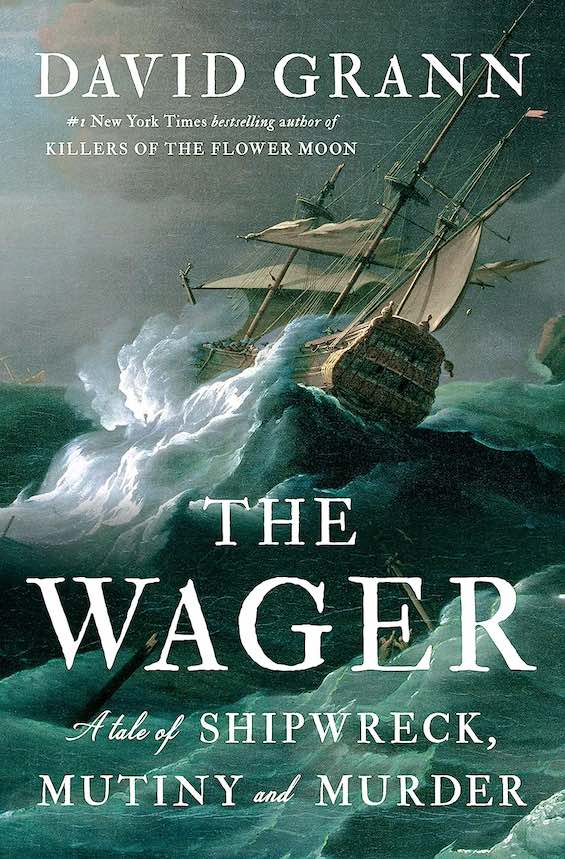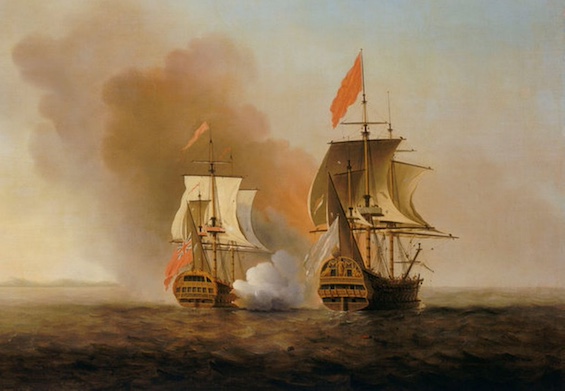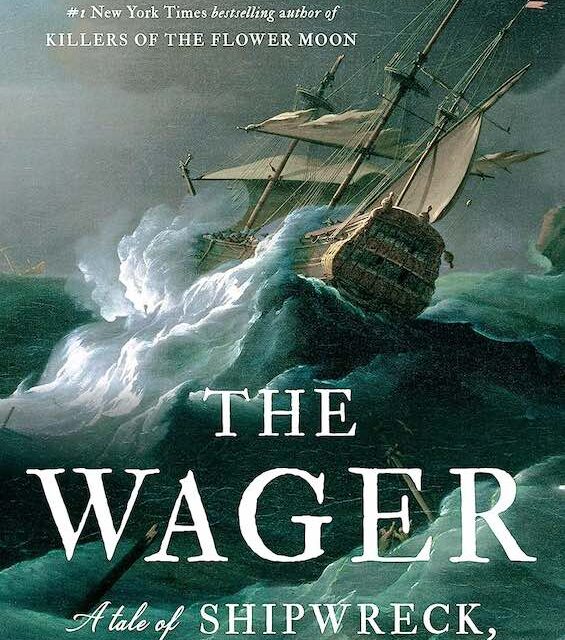
Estimated reading time: 5 minutes
History books can be dull and difficult to read, but they don’t have to be—and David Grann’s Tale of Shipwreck, Mutiny, and Murder is proof positive. In The Wager, he’s woven the facts into an engrossing story that held my attention to the last page. As he’d proved in his earlier book, Killers of the Flower Moon: The Osage Murders and the Birth of the FBI, Grann is a gifted storyteller. But make no mistake about it. He’s done a brilliant job of research from primary sources recorded nearly three centuries ago. The Wager is an authentic picture of the past that’s fully as credible as any academic history. At the same time, it’s as exciting a maritime drama as anything C. S. Forester wrote in the Horatio Hornblower novels.
High drama, with emotions at fever pitch
Working from diaries, courtroom records, and other original sources, Grann tells the story of the voyage of a British man-of-war named The Wager. The ship set out from England in 1740 as part of a small flotilla of warships on a voyage of revenge. At the time, Great Britain was engaged with Spain in what later came to be called the War of Jenkins’ Ear.
The squadron’s mission: to attack the Spanish shipping lanes, capture treasure underway to Spain, and circumnavigate the world before returning to Britain. But, almost from the start, the voyage began to encounter trouble. And when the flotilla reached the Straits of Magellan, The Wager lost touch with the other ships and ended up shipwrecked on the southern shore of Chile. At that point, events soon began to spiral out of control, leading to murder, mutiny, and, for many of the ship’s crew, starvation that sometimes led to cannibalism. This is high drama, with men’s lives stretched to the breaking-point and emotions at the boil. It’s also a revealing tale about the Royal Navy as it clawed its way to supremacy on the seas.
The Wager: A Tale of Shipwreck, Mutiny, and Murder by David Grann (2023) 327 pages ★★★★★

The historical setting
From around 1500 until 1700, Spain was the world’s most powerful country. After all, the “discoveries” in the Americas had given Madrid not only vast new territories but sources of gold and silver (especially silver) that delivered unprecedented riches. But at the beginning of the 18th century other countries began to challenge the Spanish for supremacy. Great Britain was among them. Although the island nation already boasted the world’s most powerful navy, it was but one of several warring powers during the first half of the 1700s. And it became the sole superpower only following the defeat of Napoleon in 1815. Thus, the voyage of the Wager in 1740 took place during Britain’s steady rise to dominance.
In fact, when the Wager set out on the hunt for Spanish treasure in the South Atlantic, it was part of the Admiralty’s strategy to seek revenge in what came to be called the War of Jenkins’ Ear, which lasted from 1739 to 1748. (Historian Thomas Carlyle gave the war that colorful name a century later, and it stuck.) But it was just one episode in the much larger drama of the wars consuming Europe throughout that troubled century. At one time or another, all the powers of that day faced off with one another. Britain. Spain. France. The Dutch Republic. Austria. Sweden. Russia. And still others. Nearly three centuries later the causes of most of these conflicts seem trivial. Jenkins’ Ear was only the silliest of them.
About the author

David Grann is a staff writer for The New Yorker. He has also written for other leading periodicals and is the author of five books. He has won numerous awards for his work, including the George Polk Award for his journalism.
Grann was born in Connecticut in 1967, son of the first female CEO of a major publishing firm and an oncologist father. He has two siblings and two children. He lives in New York.
For related reading
I’ve also reviewed two other superb historical works by David Grann:
- The Lost City of Z: A Tale of Deadly Obsession in the Amazon (Pre-Columbian civilization in the Amazon)
- Killers of the Flower Moon: The Osage Murders and the Birth of the FBI (The case that helped put the FBI on the map)
You might also care to check out:
- 20 top nonfiction books about history
- Top 10 historical mysteries and thrillers
- Top 10 great popular novels
And you can always find my most popular reviews, and the most recent ones, on the Home Page.


























